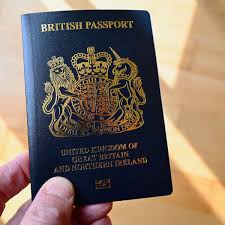The Importance and Recent Changes to the British Passport

Introduction
The British passport is one of the most recognized travel documents globally, enabling millions of UK citizens to travel internationally with ease. It serves not only as a proof of identity and citizenship but also offers various legal protections and rights abroad. Given the ongoing changes related to travel regulations and formal post-Brexit realities, understanding the current state of the British passport is essential for all citizens planning to travel.
The Role of the British Passport
The British passport allows its holders to access numerous countries without the need for a visa, thanks to the United Kingdom’s strong diplomatic relations. As of October 2023, UK passport holders can visit over 180 countries visa-free or with visa-on-arrival options. This facilitates trade, tourism, and international relations, underscoring the passport’s importance in a globally connected world.
Recent Changes and Developments
Following the UK’s exit from the European Union (EU), several changes have impacted the British passport and international travel regulations. The new post-Brexit landscape means that UK citizens now face different visa requirements when visiting Europe. The European Union has implemented the European Travel Information and Authorisation System (ETIAS), which UK citizens will need to comply with starting in 2024. This will necessitate an online application and a small fee for entry into Schengen Area countries.
Moreover, the British government has taken steps to modernize the passport application process, including faster processing times and enhanced security features. The introduction of digital services for application submissions and the potential rollout of the digital passport are part of these advancements aimed at maintaining the UK passport’s integrity and efficiency.
Counters to Security and Fraud
As the value of the British passport endures, so does the threat of passport fraud and counterfeiting. The UK Home Office has implemented measures to combat these issues by incorporating state-of-the-art technology in passport features to enhance security. This initiative is significant in preserving the reputation of the British passport and ensuring that it remains a trusted document both at home and abroad.
Conclusion
The British passport not only facilitates travel for citizens but also reflects the UK’s global image and standing. With upcoming changes in travel requirements and advancements in passport technology, it is crucial for holders to remain informed and prepared. As geopolitical relations evolve, especially in a post-Brexit era, the relevance and regulations associated with the British passport will continue to play a vital role in shaping the travel experiences of UK citizens.









